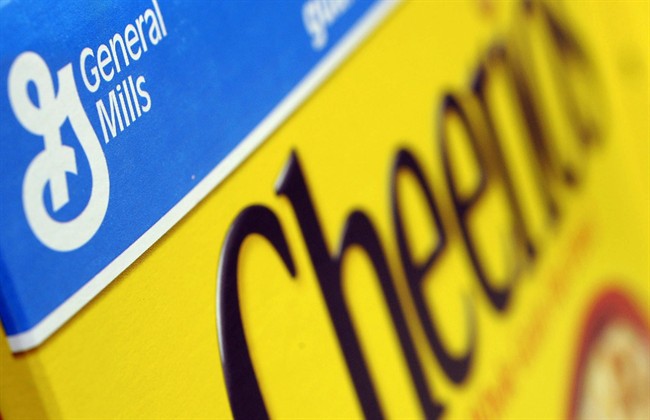TORONTO – Companies planning to voluntarily label products in the U.S. containing genetically modified ingredients aren’t going to follow suit in Canada.

Health Canada does not require labelling on genetically modified food because the items have been assessed for safety and nutritional adequacy. Before selling or advertising a genetically modified food in Canada, manufacturers and importers must submit data to Health Canada for a safety assessment, which takes years to complete, the agency says on its website.
Food giant General Mills Inc. said earlier this month that it would start nationwide labelling in the U.S. on products that contain genetically modified ingredients to comply with a law that takes effect in Vermont on July 1. The company said it’s not practical to do separate labelling for just one state.
READ MORE: Campbell Soup says it supports federal standard for GMO labelling in U.S.
Campbell Soup Co. said it is also printing new national labels in preparation for Vermont’s law, although it opposes state-by-state labelling requirements.
WATCH: Young GMO labeling campaigner targeted for activism
But they and several other international food companies have no plans to change their labelling practices in Canada.
Leslie Brams-Baker, corporate affairs manager for Mars Canada, said the company complies with labelling laws in Canada and other countries where its products are sold.
READ MORE: Documents reveal Canadian teenager target of GMO lobby
“We firmly believe in the safety of the GMO ingredients. Food developed through biotechnology has been studied extensively and judged safe by a broad range of regulatory agencies, scientists, health professionals, and other experts around the world,” Brams-Baker wrote in an email to The Canadian Press.
“All of the ingredients we use in our products – including GM ingredients – comply with our own strict internal quality and safety requirements, as well as all applicable laws and regulations.”
Kellogg Canada said it decided to label nationally in the U.S. “because a special label for Vermont would be logistically unmanageable and even more costly for us and our consumers.”
READ MORE: Campbell soup cans to be BPA-free by mid-2017
Spokespeople for Campbell Company of Canada and General Mills Canada echoed the comments while ConAgra Foods Canada did not reply to requests for comment.
Genetically modified seeds are engineered in laboratories to have certain traits, such as resistance to herbicides. The food industry in the U.S. says about 75 per cent to 80 per cent of foods contain genetically modified ingredients.
The Food and Drug Administration says they are safe, and there is little scientific concern about the safety of those GMOs on the market. But advocates for labelling say not enough is known about their risks. Among supporters of labelling are many organic companies that are barred by law from using modified ingredients in their foods.
Those advocates have been fighting state by state to enact the labelling, with the eventual goal of a national standard.



Comments